Junior Sruthi Sreehari said she attended nearly 12 concerts in 2024, compared to the two to three concerts she has gone to each year in the past.
“For me personally, I think (going to concerts) is just a way to meet new people, listen to the artists live, and just have a fun experience with the music, the lights, everything,” Sreehari said.
Sreehari isn’t alone. According to The Hollywood Reporter, Live Nation reported its best year in terms of ticket sales and attendance last year, with concert attendance up 20% from 2022 and more than 145 million fans attending over 50,000 events. Ticketmaster, a ticket selling company owned by Live Nation, sold 620 million tickets, up 13% from 2022. This increase in concert attendance is expected to continue over the rest of 2024 and the years to come.
But along with the increase in concert attendance, ticket prices have escalated to record breaking amounts. According to Next Gen Personal Finance, Pollstar, a live music trade publication, said the average face-value ticket price for the top 100 music tours in 2023 was $122.84, more than $30 higher than the average face-value price of $91.86 in 2019. In 2000, the average face-value price was only $40.74. For the top 10 tours, it was even more expensive last year, at $152.97.
Economics teacher Shawn Curtis said weighing the benefits of going to concerts over the cost can ultimately become the deciding factor for many people choosing to spend their extra income on concert tickets.
“People are social creatures. Music and the communal sharing of music is a psychologically beneficial experience for our mental health,” Curtis said. “Sometimes you just have to know that your money is going to enjoying life rather than just paying for life. I have taken my daughter to about seven concerts this year. It is definitely a huge hit on my budget, but she is graduating in two years and we could either sit around with me just paying bills or I could make memories with her sharing the artists that we both love.”
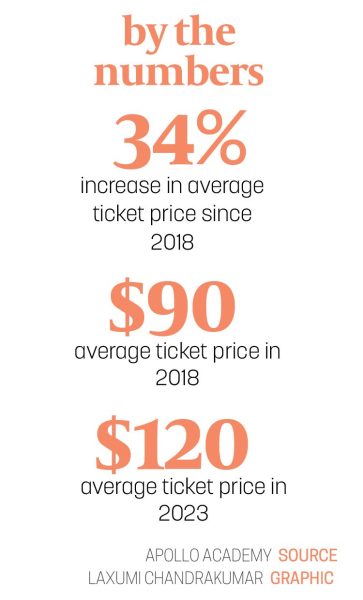
Economics teacher Dominique Camara shared a different view on what people choose to spend their additional income on, and said it ultimately depends on the individual and their personal interests.
“Although there are a lot of people going to concerts, there are still many people who choose to spend their disposable income in many other ways,” Camara said via email. “I think in general today’s consumer has a lot of very specific options of how to spend their money. Even yesterday, my 7-year-old child had a very specific request to spend his little $10/week allowance on a very particular pair of Jordans. He had saved up, did the research and was unwavering in what he wanted. Today’s consumer knows exactly what they want for their leisure and are usually willing to pay for it.”
Junior Marley Ansted said she thinks the increased cost of concert tickets has made it more difficult for people to see their favorite artists. Curtis agreed with this sentiment and said economic inequality has a role to play in who can go to all sorts of ticketed events.
“Look at Disney’s plan to make tickets for one day at the parks $200, or Colts games costing more than $150 a ticket,” Curtis said. “More and more, unless you can find some sort of deal or know someone who can give you access, outdoor entertainment is becoming a class perk.”
Ansted said the face-value prices of concert tickets are reasonable, and resellers make the tickets difficult for people to access due to the price markup.
“I have been to The Eras Tour 3 times and have gotten both lucky and unlucky with the prices,” Ansted said. “In my last Taylor (Swift) concert, I spent $200 on lower bowl seats which I thought was a great price.”
Sreehari agreed that ticket resellers have negatively impacted fans’ ability to afford concert tickets.
“I feel like (ticket resellers) get the tickets really cheap, and then when they want to sell it, I feel like they bump up the prices by a lot,” Sreehari said, “I was looking at (a ticket for) The Eras Tour and it was like $7,000. I was like, ‘Dude, it’s on resale, are you serious?’”
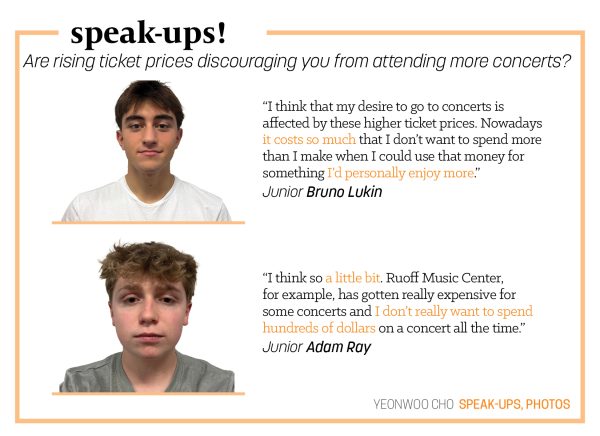
Curtis said the rise in ticket prices will not likely stop anytime soon.
“As in anything, if the people are willing to pay, then they will be willing to sell. If the price of putting on a concert continues to become more and more expensive, then there is no end in sight,” Curtis said. “If people have not revolted against paying $9 for a 400% marked up tub of popcorn at the movies, then they certainly are no closer to not handing over thousands to StubHub despite their grumbling.”
Camara shared a similar sentiment and said increased regulation of the ticketing industry may be the only viable solution to lessen ticket prices.
“It is true that concert tickets, relative to inflation, have gone up on average more than other consumer goods. Considering general inflation coupled with high attendance at concerts, I don’t foresee those prices going down any time soon,” Camara said. “The only thing that might curb prices would be some sort of increased oversight or regulation of the industry. The only place that I could see that as being productive would be with the initial buying of tickets by bots, and there are several proposed pieces of legislation to help curtail unfair ticket sale practices.”
Ansted shared a similar view on the regulation of tickets being purchased and sold by bots.
“I’m guessing that in the near future, ticket selling apps like Ticketmaster, SeatGeek (and) Stubhub will have security to see who is a bot and who is a reseller. I think that if they found a way to prevent these people from buying tickets, then prices would dramatically drop.”
All in all, Ansted said many people are willing to spend their money on concert tickets, despite the cost, because music is an important part of their lives.
“I think that a lot of people are thinking about the positive experience and memories that they will make. Also because music is such a big part of people’s lives, seeing their favorite artist live is great,” Ansted said. “…All of the (concerts) that I have been to, I have had a great time and never regretted spending the money.”




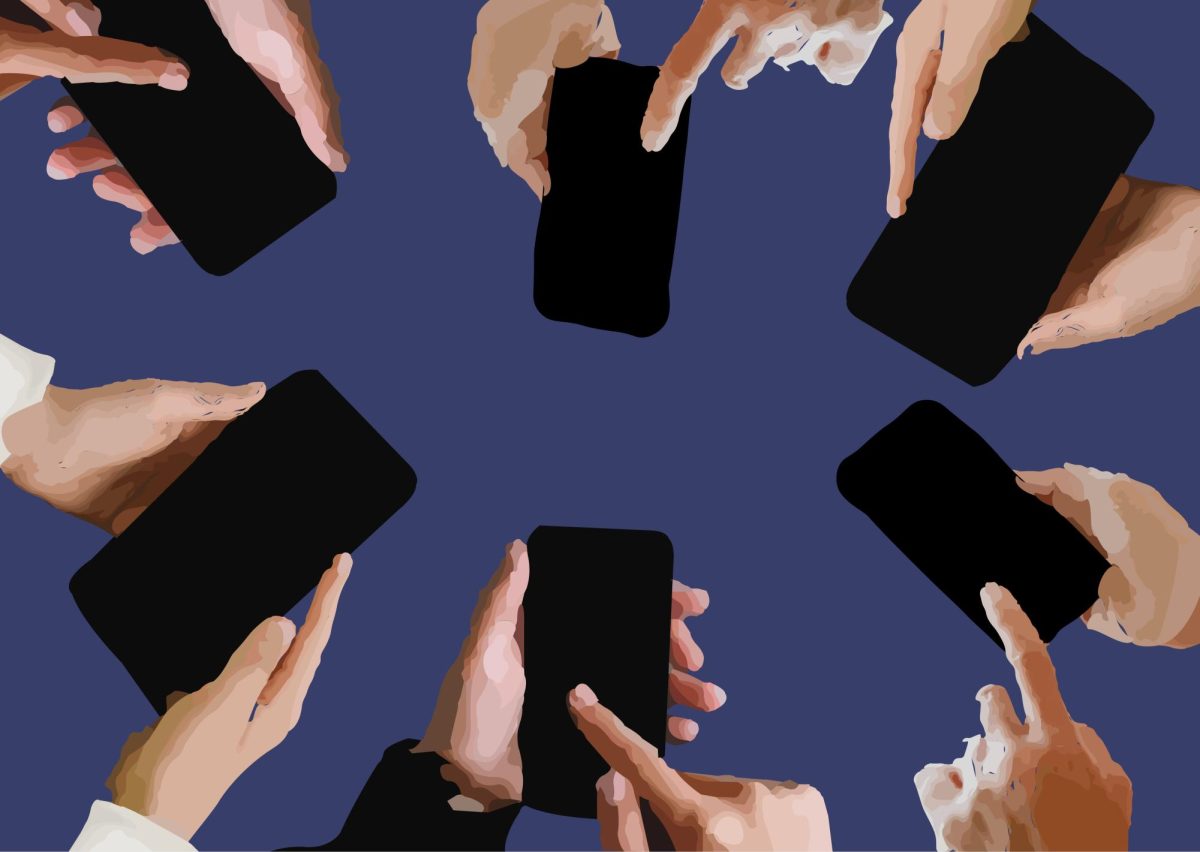










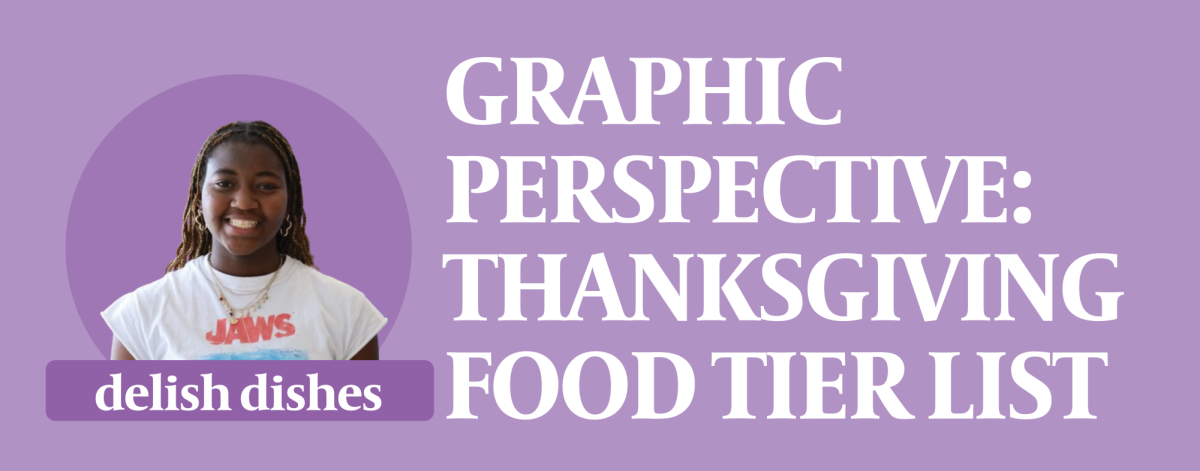
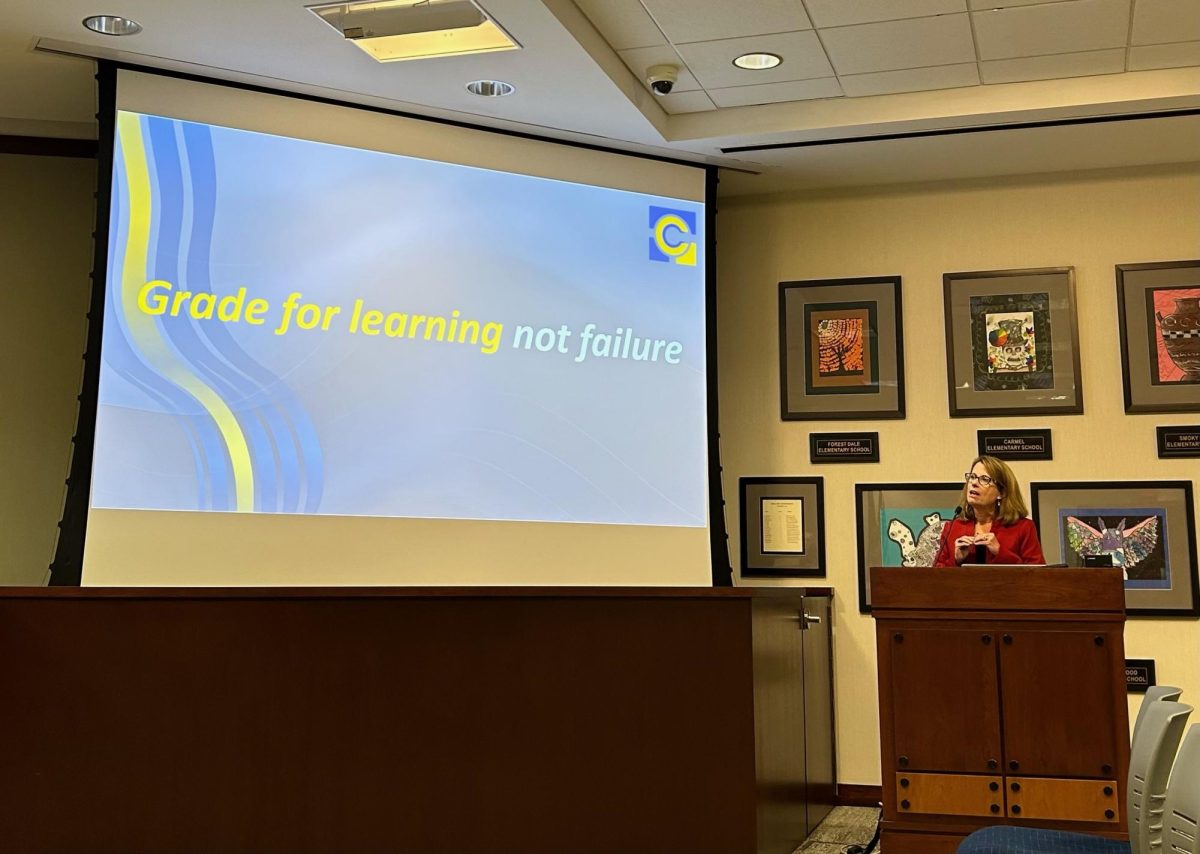

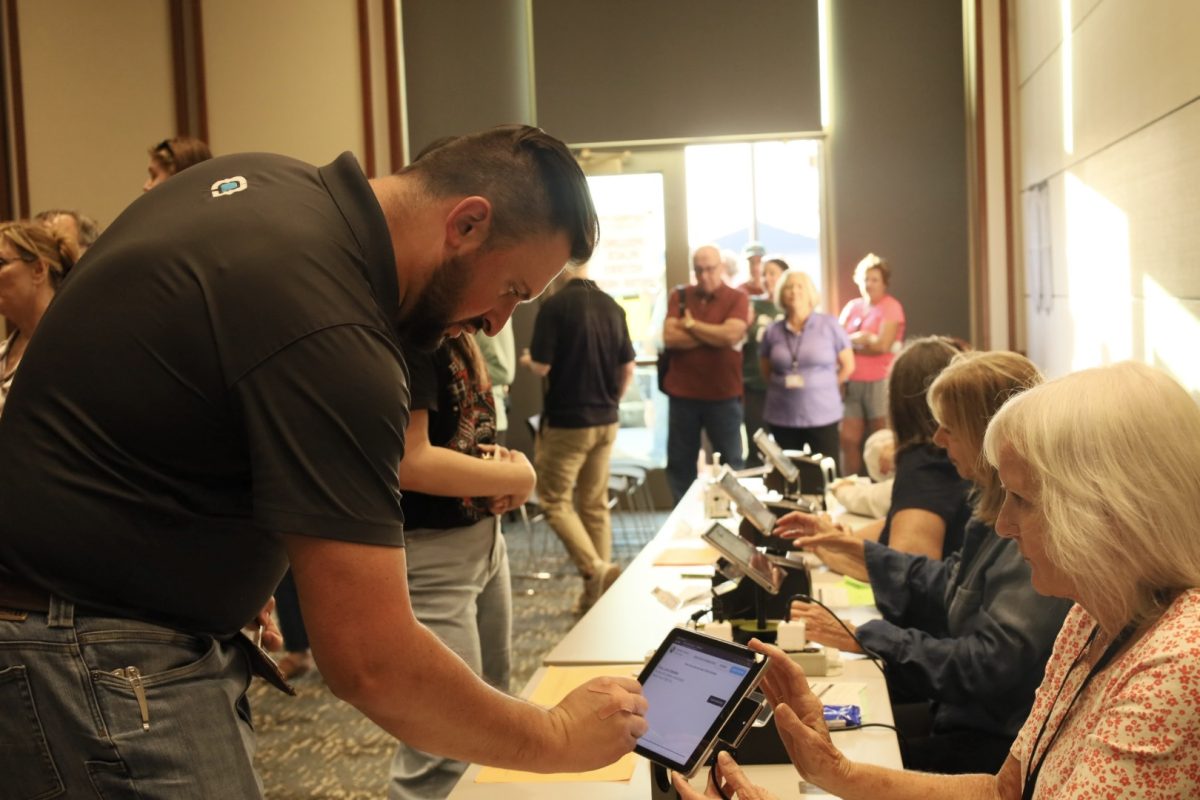

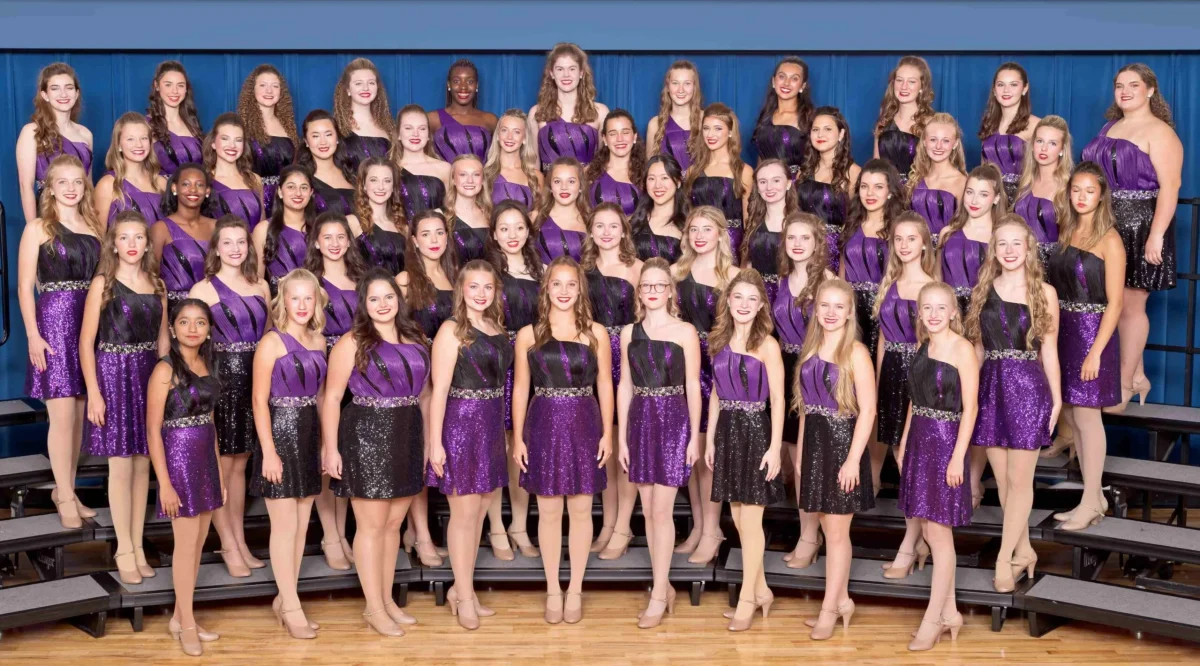
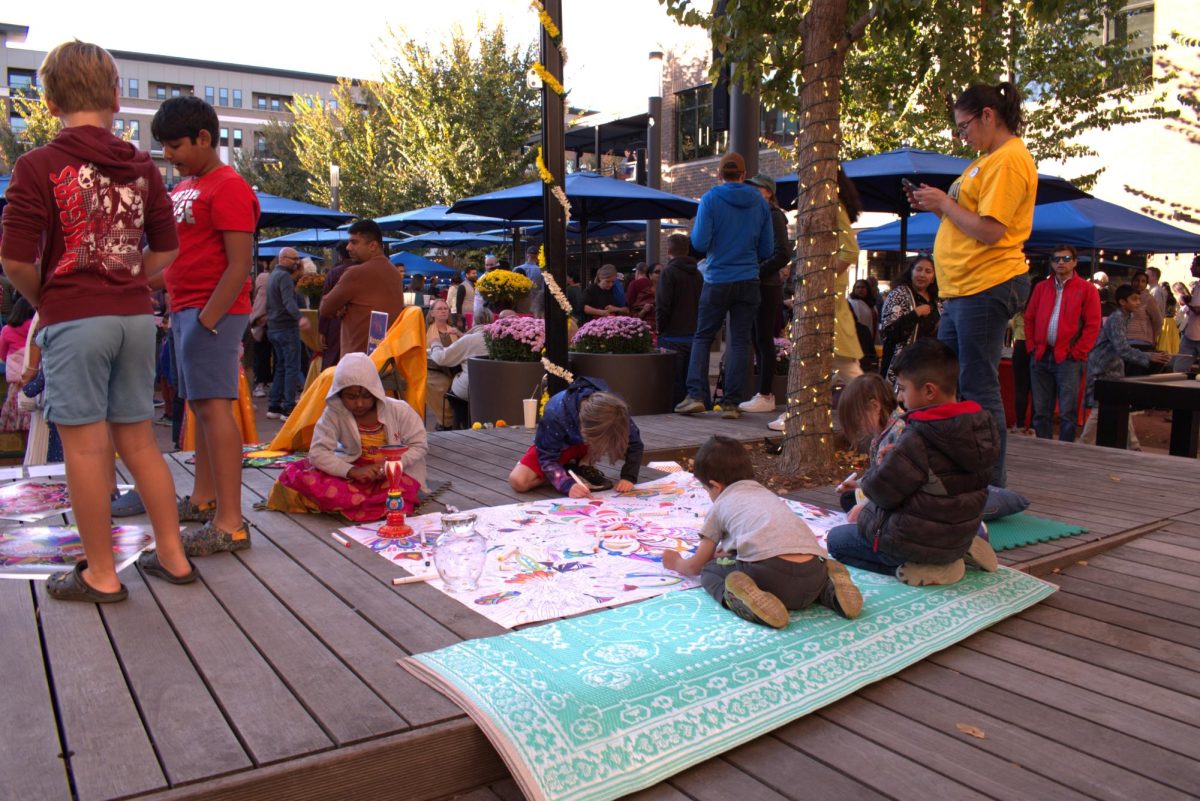
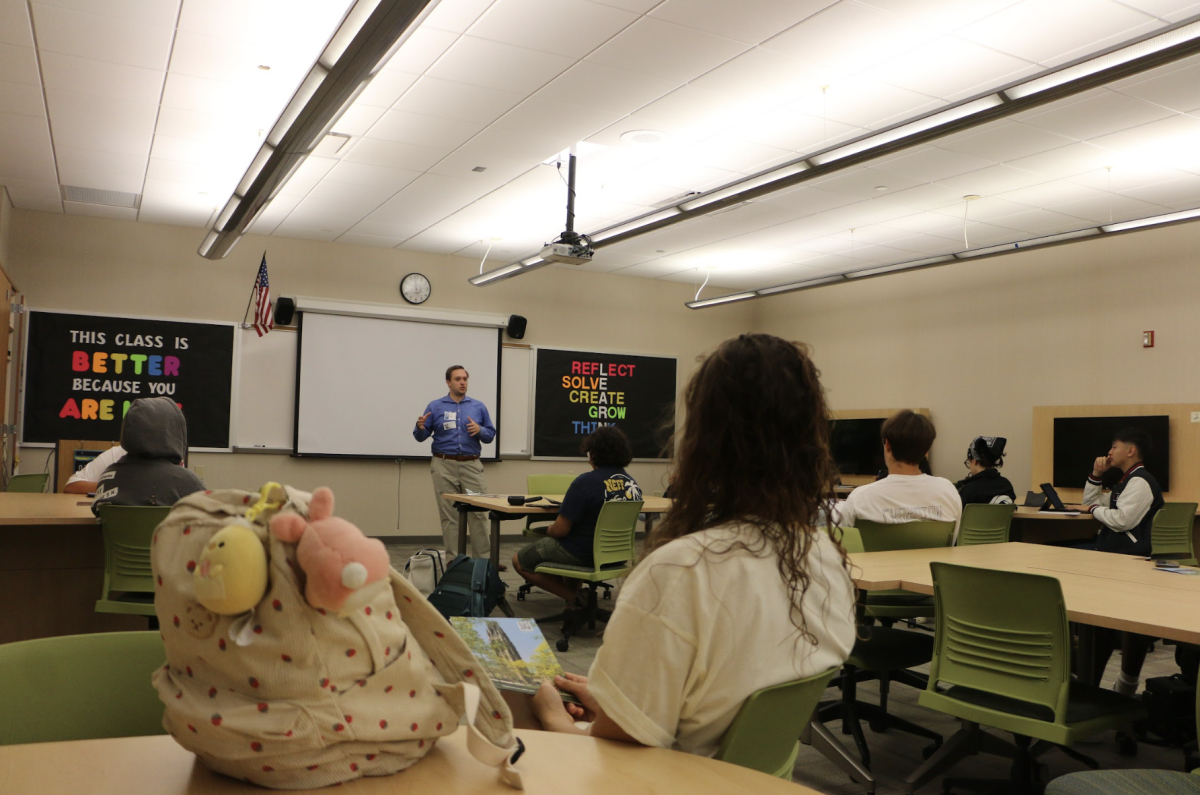


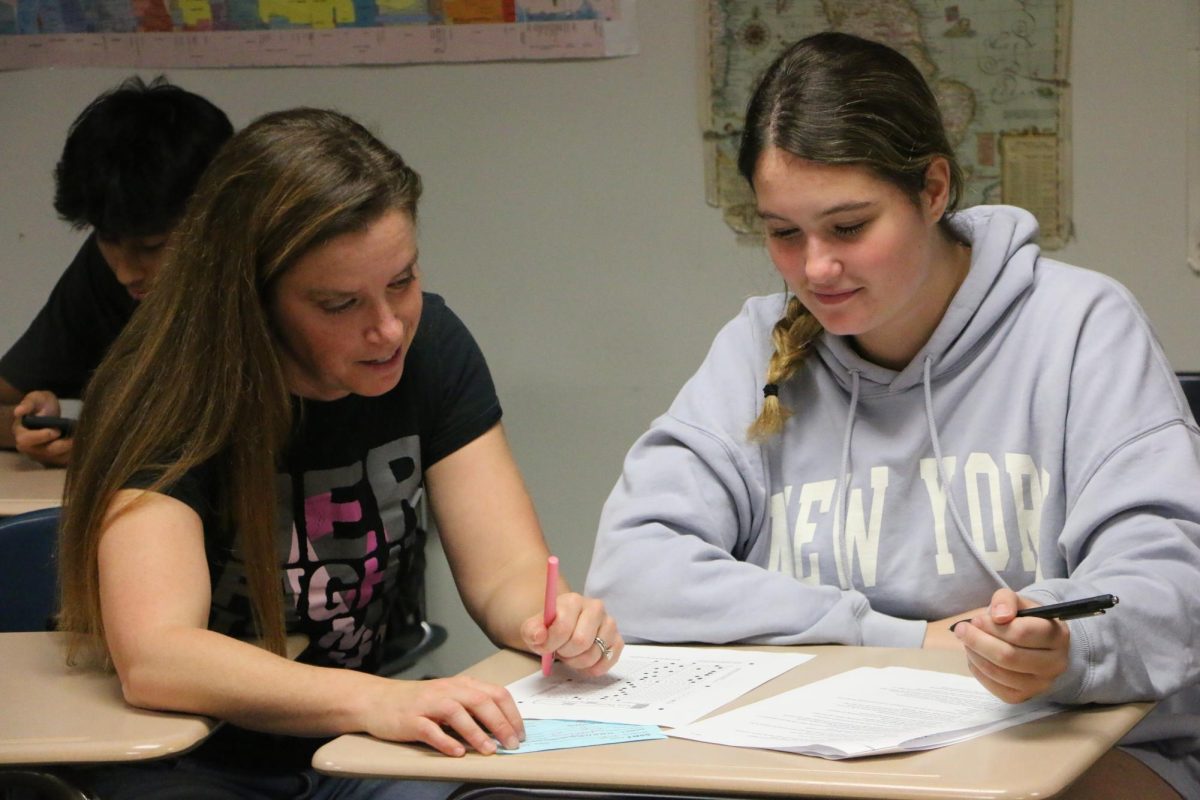

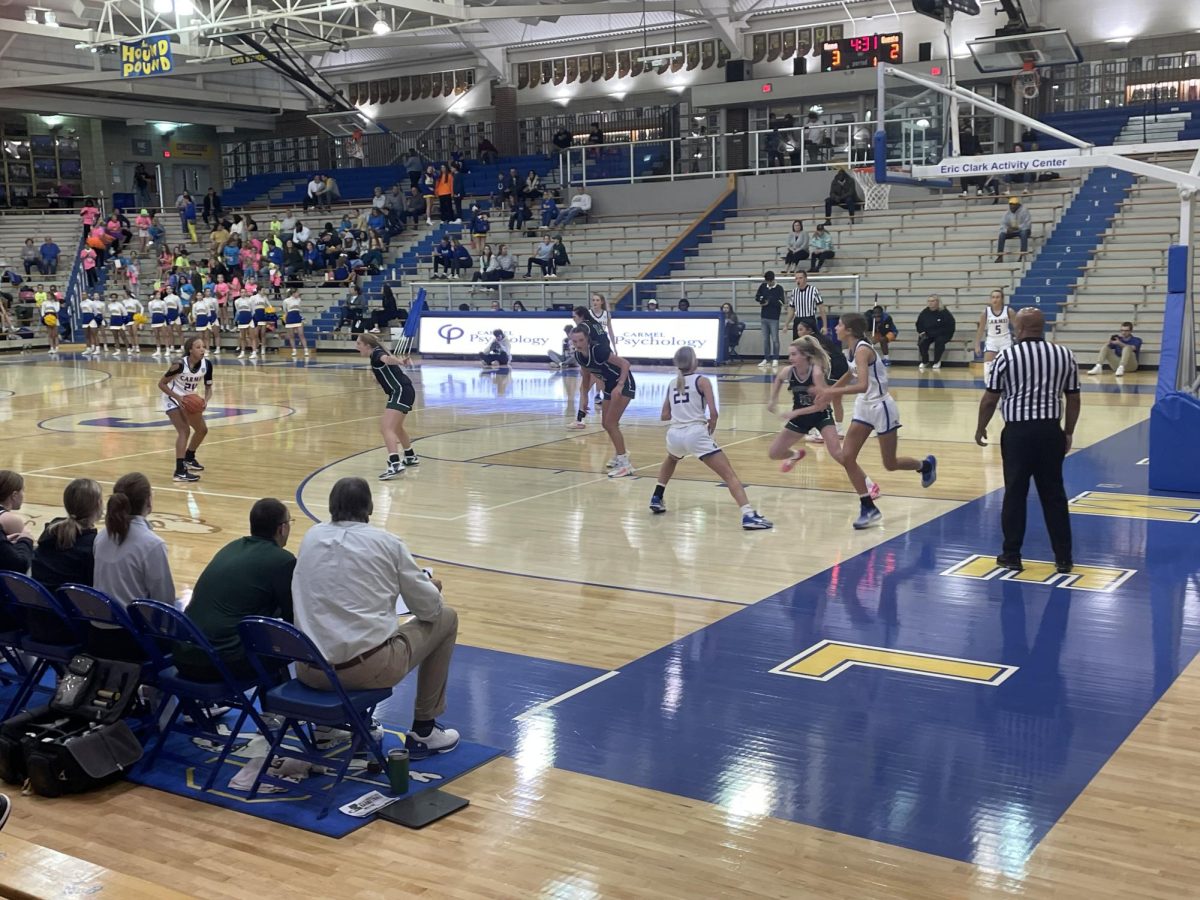


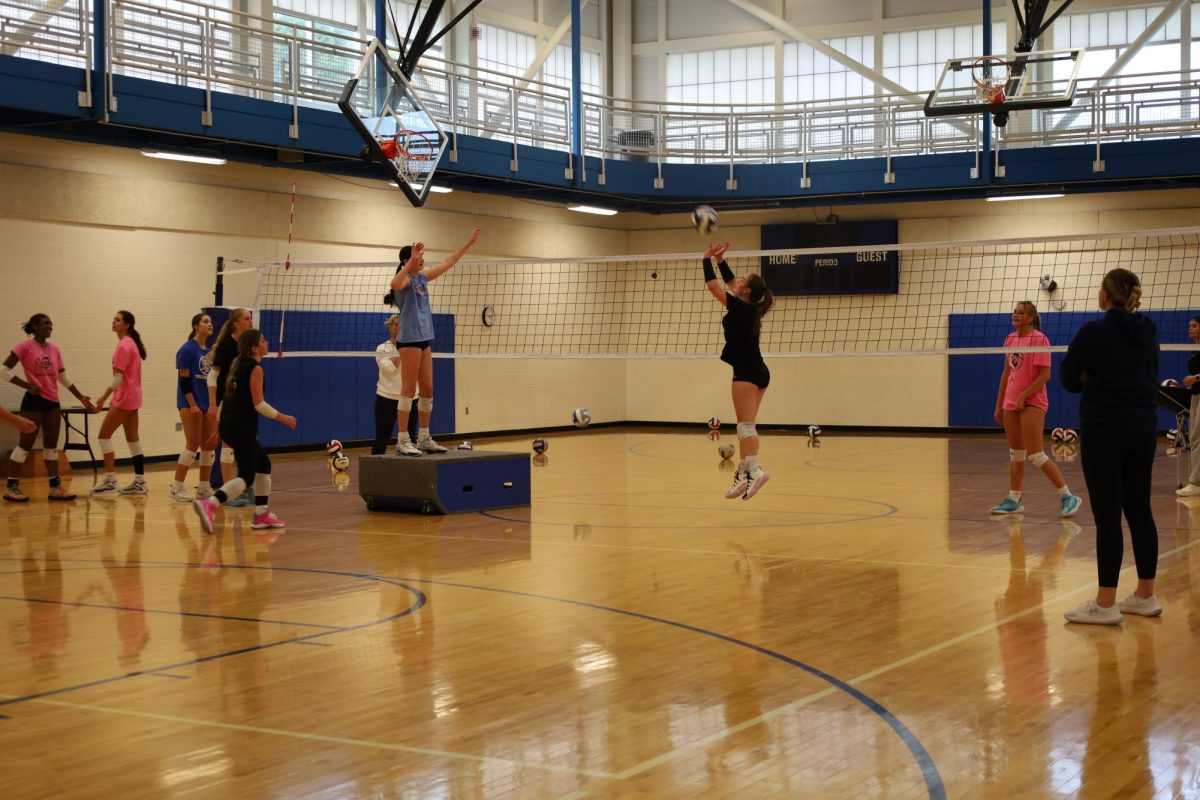

!["Wicked" poster controversy sparks a debate about the importance of accuracy versus artistic freedom [opinion]](https://hilite.org/wp-content/uploads/2024/11/riva-perspective-cover-1200x471.jpg)
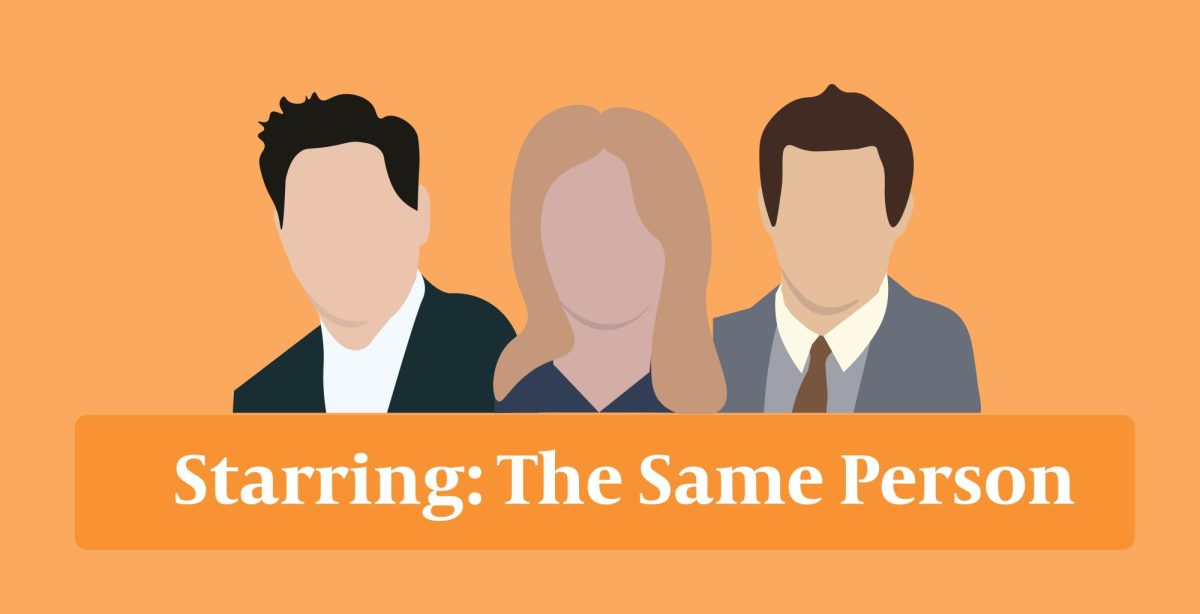
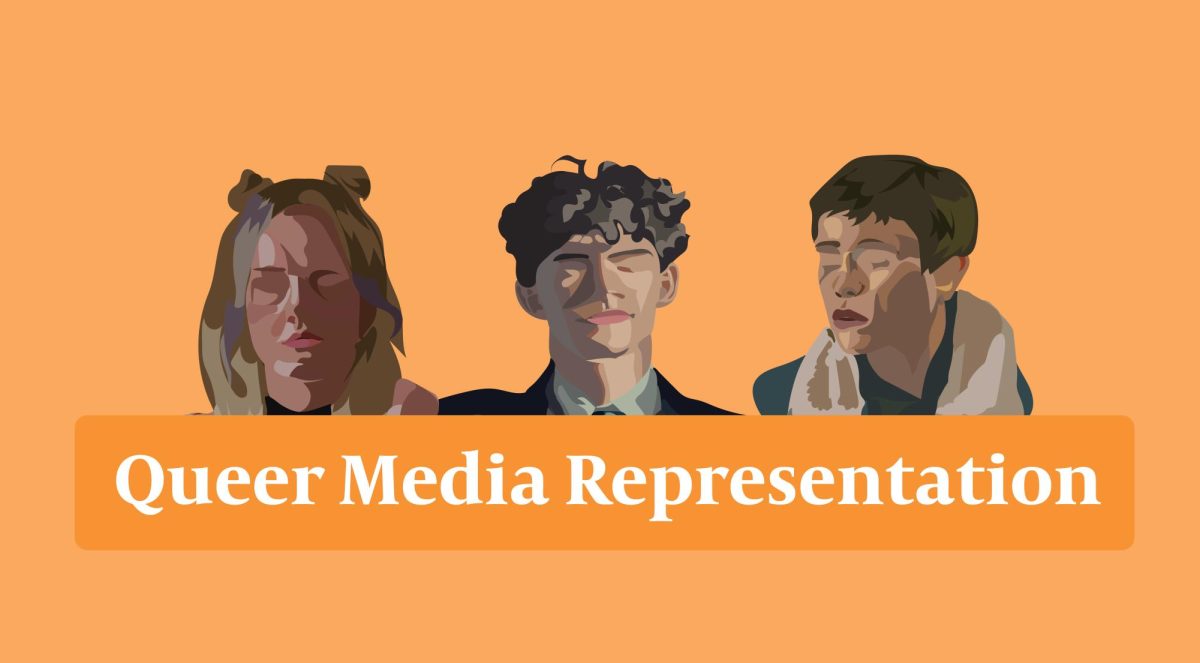
![Chilling or Childish? The downfall of modern horror movies [opinion]](https://hilite.org/wp-content/uploads/2024/10/adjusted-horror-cover-1200x471.jpg)


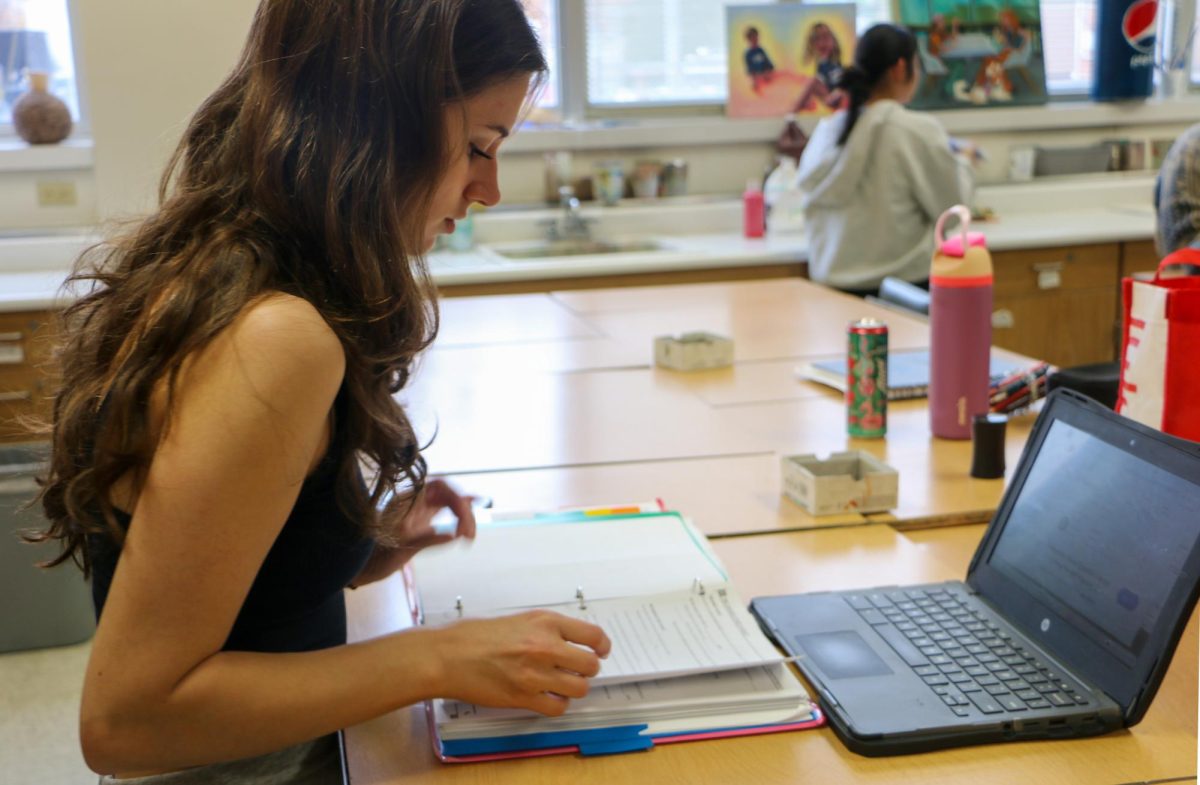

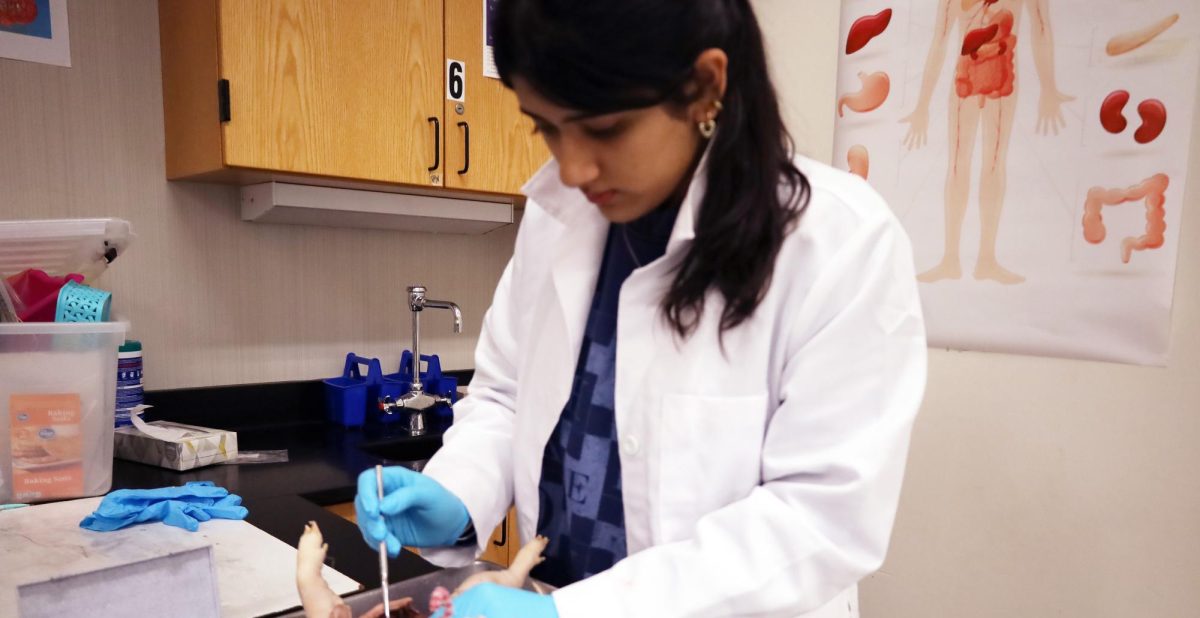







































![Review: “Arcane” Season 2 exceeds expectations, but leaves the finale as the make or break of the series [MUSE]](https://hilite.org/wp-content/uploads/2024/11/GUddsa6XIAAuDuB-1-e1723281667555-1200x676.jpg)
![Review: Indy Scream Park is a perfect level of spook to kickstart the Halloween season [MUSE]](https://hilite.org/wp-content/uploads/2024/11/IMG_1383.jpg)
![Review: “Saturday Night” is a chaotic and thrilling look at the origins of “Saturday Night Live” [MUSE]](https://hilite.org/wp-content/uploads/2024/10/snl-1200x800.jpg)
![Review: “Megalopolis” is a bold, bewildering mess [MUSE]](https://hilite.org/wp-content/uploads/2024/10/MV5BYTk3MjUzMGItYmU1NC00M2YyLThmNDMtNDI4NjkxNjgzMjQzXkEyXkFqcGdeQXRyYW5zY29kZS13b3JrZmxvdw@@._V1_-1200x675.jpg)
![Review in Print: Maripaz Villar brings a delightfully unique style to the world of WEBTOON [MUSE]](https://hilite.org/wp-content/uploads/2023/12/maripazcover-1200x960.jpg)
![Review: “The Sword of Kaigen” is a masterpiece [MUSE]](https://hilite.org/wp-content/uploads/2023/11/Screenshot-2023-11-26-201051.png)
![Review: Gateron Oil Kings, great linear switches, okay price [MUSE]](https://hilite.org/wp-content/uploads/2023/11/Screenshot-2023-11-26-200553.png)
![Review: “A Haunting in Venice” is a significant improvement from other Agatha Christie adaptations [MUSE]](https://hilite.org/wp-content/uploads/2023/11/e7ee2938a6d422669771bce6d8088521.jpg)
![Review: A Thanksgiving story from elementary school, still just as interesting [MUSE]](https://hilite.org/wp-content/uploads/2023/11/Screenshot-2023-11-26-195514-987x1200.png)
![Review: "When I Fly Towards You", cute, uplifting youth drama [MUSE]](https://hilite.org/wp-content/uploads/2023/09/When-I-Fly-Towards-You-Chinese-drama.png)
![Postcards from Muse: Hawaii Travel Diary [MUSE]](https://hilite.org/wp-content/uploads/2023/09/My-project-1-1200x1200.jpg)
![Review: "Ladybug & Cat Noir: The Movie," departure from original show [MUSE]](https://hilite.org/wp-content/uploads/2023/09/Ladybug__Cat_Noir_-_The_Movie_poster.jpg)
![Review in Print: "Hidden Love" is the cute, uplifting drama everyone needs [MUSE]](https://hilite.org/wp-content/uploads/2023/09/hiddenlovecover-e1693597208225-1030x1200.png)
![Review in Print: "Heartstopper" is the heartwarming queer romance we all need [MUSE]](https://hilite.org/wp-content/uploads/2023/08/museheartstoppercover-1200x654.png)




